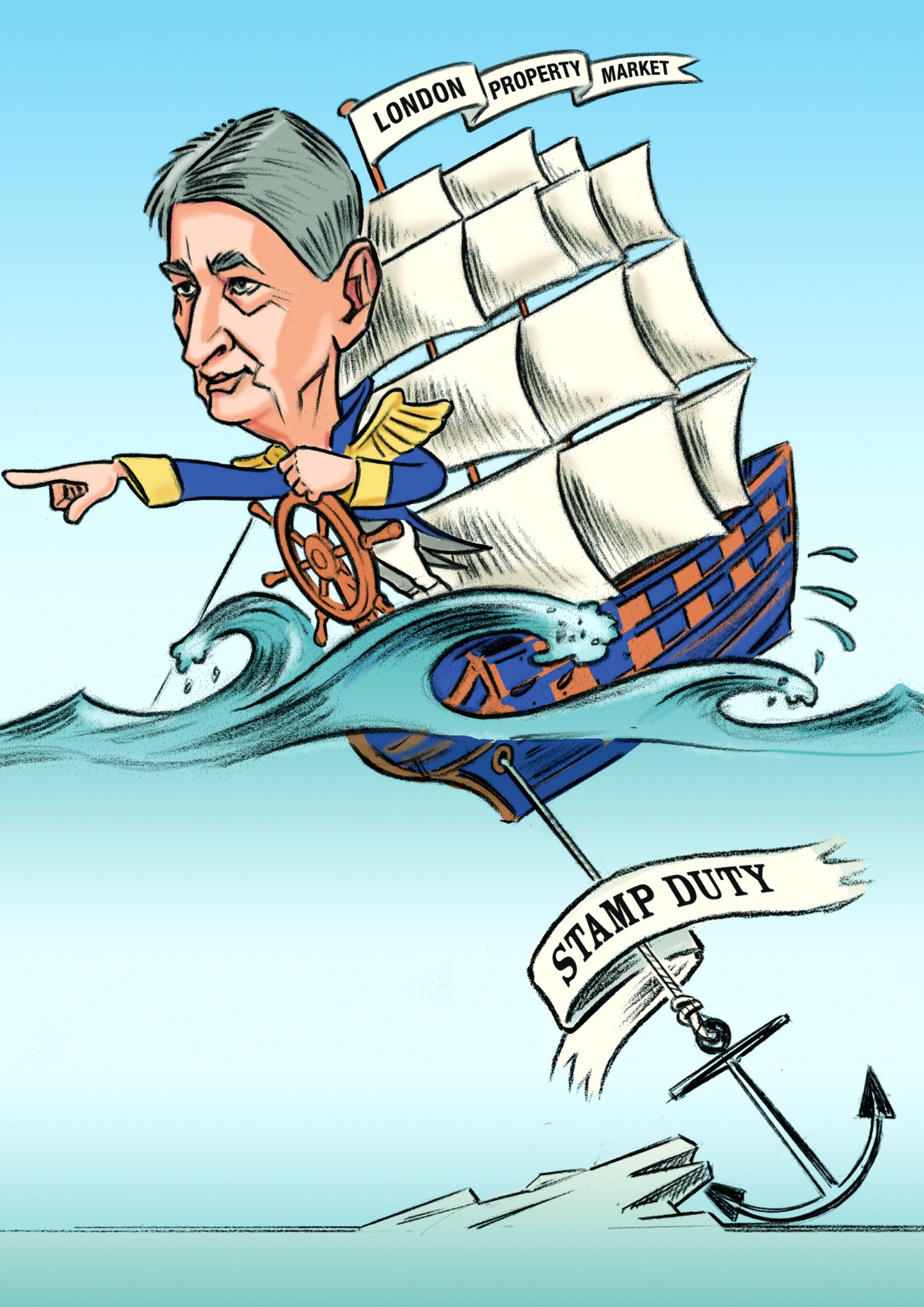Different Chancellor Same Anchor


There was a time when owning a prime Central London property was the best tax free investment you could make. Not only could you live in it, it was an overdraft facility, a school/university fee vehicle for your children and it still took care of you into your retirement.
Although still a very good investment, successive governments have seriously eroded the greatest perk of working and living in London by raising stamp duty from 1% in 1997 to the possible 15% today. These costs can run into hundreds of thousands of pounds, and occasionally millions, making moving financially unjustiable and have reduced prime central London property transactions by 40% in just three short years.
Buyers are citing unacceptable property taxes over Brexit for not buying. Sellers feel Stamp Duty is a purchase tax so not their problem and the buyers are refusing to pay the sellers prices as well as the extra Stamp Duty.
Back in 2013 it was broadly reported that Britain had the highest property taxes in the developed world, long before George Osbourne added even more, which has driven transactions far lower than during the 2008 credit crunch. You will see from these charts that PCL sales have fallen from 6,288 in 2013 to a nadir of 3,730 in 2016 when in the good old days of low property taxation in 2000 there were 11,243 sales.
The Chancellor boasts to have squeezed our squeaking pips to the tune of a £7.7 billion record in Stamp Duty revenue in just the first eight months of this financial year. Considering around 90% of all buyers paid less SDLT than before, and the rich are paying much more, this appears to be an economic success and a vote winning master stroke.
In voting terms of course it is, however, in the 20 years of increased taxation, prime Central London has seen transactions fall by 67% which equates to 7,513 people a year taxed out of moving. Tax revenue is up only because property values are up, but compared with what could have been raised with lower taxes, it is a drop in the ocean. For example the average property price in PCL is around £3,000,000 so the VAT alone on the estate agents fees for these lost transactions would be £112,695,000. Then consider the loss in taxes estate agents, solicitors, surveyors, mortgage firms, removal companies, builders, photographers, floor planners, and all the other ancillary services the property market supports, would have paid in company tax, P.A.Y.E. and National Insurance contributions.
Price Waterhouse Coopers estimate that tax raised from properties worth more than £1.5m fell to £749m in the first 9 months of 2016 compared with £1.08 billion for the same period in 2015 which gives an estimated loss of £441m for the full year.
All this and we haven’t even touched on the raft of tax changes levelled on anyone with the temerity to have a second home or rental investment. The government would have us believe that this weighted taxation was implemented to benefit lower income and first time buyers however, it has achieved the opposite by incentivising investors to buy cheaper properties to save stamp duty. For instance, buying two £1m investments rather than one at £2m will save an investor over £66,000 in Stamp Duty. As the savings increase, the cheaper the purchase price seems. Yet still, the government refuse to accept their taxes have stalled the sector preferring to blame Brexit and other world events.
So it begs the question, when none of these taxes make economic sense what reasons, other than political, could there possibly be for keeping them in place? In conclusion, with these taxes, prime Central London’s property market is like a ship trying to set sail, without raising its anchor, captained by a man too arrogant to admit the mistake.
For information on mews properties for sale which make great investments, contact us. We’d love to show you around several of the stunning mews homes on our books and discuss how purchasing one or several of these can add considerable value to your property portfolio.
